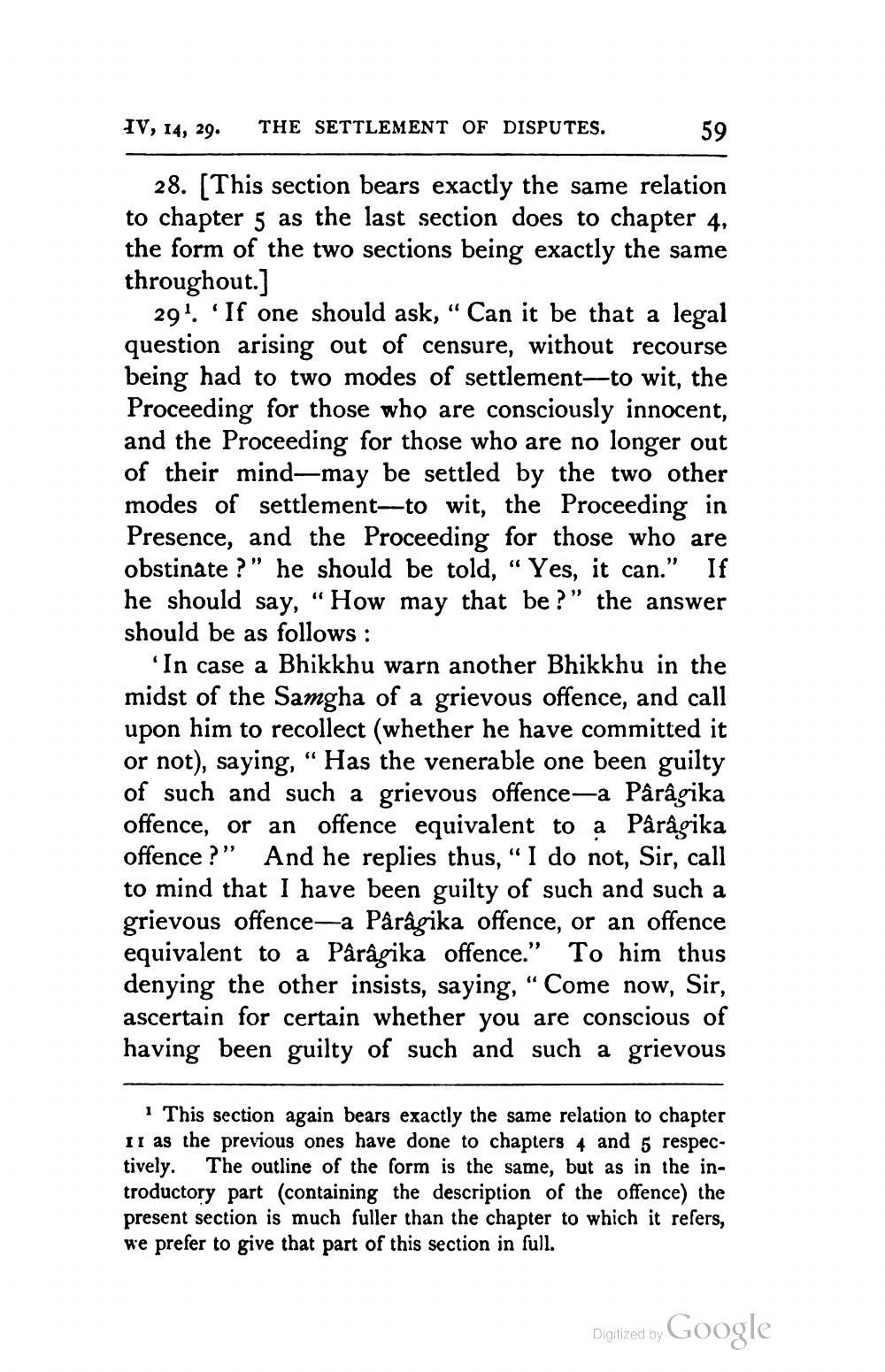________________
IV, 14, 29.
THE SETTLEMENT OF DISPUTES.
59
28. [This section bears exactly the same relation to chapter 5 as the last section does to chapter 4, the form of the two sections being exactly the same throughout.]
29. 'If one should ask, "Can it be that a legal question arising out of censure, without recourse being had to two modes of settlement-to wit, the Proceeding for those who are consciously innocent, and the Proceeding for those who are no longer out of their mind-may be settled by the two other modes of settlement-to wit, the Proceeding in Presence, and the Proceeding for those who are obstinate?" he should be told, "Yes, it can." If he should say, "How may that be?" the answer should be as follows:
'In case a Bhikkhu warn another Bhikkhu in the midst of the Samgha of a grievous offence, and call upon him to recollect (whether he have committed it or not), saying, "Has the venerable one been guilty of such and such a grievous offence-a Pârâgika offence, or an offence equivalent to a Pârâgika offence?" And he replies thus, "I do not, Sir, call to mind that I have been guilty of such and such a grievous offence-a Pârâgika offence, or an offence equivalent to a Pârâgika offence." To him thus denying the other insists, saying, "Come now, Sir, ascertain for certain whether you are conscious of having been guilty of such and such a grievous
1 This section again bears exactly the same relation to chapter II as the previous ones have done to chapters 4 and 5 respectively. The outline of the form is the same, but as in the introductory part (containing the description of the offence) the present section is much fuller than the chapter to which it refers, we prefer to give that part of this section in full.
Digitized by Google




